Search results
Family Search adds even more New Records for 2012
August 26, 2012 by ramona
Filed under Articles, Latest News
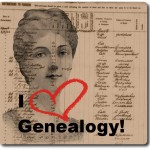 With the 1940s, Census indexing project finished you might think the team at FamilySearch.org would want to take a little rest. They certainly deserve one!
With the 1940s, Census indexing project finished you might think the team at FamilySearch.org would want to take a little rest. They certainly deserve one!
Instead, they are still busy adding new records and updates.
For the month of August 2012, they have added 50 sets of new records and updates covering North America, South America, Great Britain, Europe and more.
Among the new additions are court papers, cemetery transcriptions, obituaries, immigration information, probate records, passenger lists, mortality schedules, civil war records, census and civil registrations as well as marriage, birth, baptism and death records.
Here is a list of new records thus far this month:
New Additions and Updates at Family Search: August 2012 |
Images Included |
Date Added |
| Alabama, Jefferson County Circuit Court Papers, 1870-1916 |
YES |
14 Aug 2012 |
| Alabama, Sumter County Circuit Court Files, 1840-1950 |
YES |
20 Aug 2012 |
| California, San Mateo County Records, 1855-1991 |
YES |
14 Aug 2012 |
| Idaho, Obituaries, 2007 |
YES |
14 Aug 2012 |
| Illinois, Cemetery Transcriptions, 1853-2009 |
YES |
14 Aug 2012 |
| Illinois, County Naturalization Records, 1800-1962 |
YES |
7 Aug 2012 |
| Indiana, Marriages, 1811-1959 |
NO |
16 Aug 2012 |
| Kentucky, Probate Records, 1792-1977 |
NO |
17 Aug 2012 |
| Maine, County Naturalization Records, 1800-1990 |
YES |
10 Aug 2012 |
| Maryland, Probate Estate and Guardianship Files, 1796-1940 |
NO |
15 Aug 2012 |
| Montana, Yellowstone County Records, 1881-2011 | 16 Aug 2012 | |
| New Hampshire, County Naturalization Records, 1771-2001 |
YES |
15 Aug 2012 |
| New Jersey, Probate Records, 1678-1980 |
YES |
15 Aug 2012 |
| New York, New York Passenger and Crew Lists, 1925-1942 |
YES |
22 Aug 2012 |
| Ohio, Births and Christenings, 1821-1962 |
NO |
24 Aug 2012 |
| Ohio, County Births, 1856-1909 |
NO |
24 Aug 2012 |
| Ohio, County Marriages, 1789-1994 |
NO |
16 Aug 2012 |
| Ohio, Jefferson County Court Records, 1797-1940 |
YES |
23 Aug 2012 |
| North Carolina, Estate Files, 1663-1979 |
NO |
2 Aug 2012 |
| Texas, Deaths (New Index, New Images), 1890-1976 |
NO |
11 Aug 2012 |
| Texas, Deaths, 1977-1986 |
NO |
21 Aug 2012 |
| United States Census (Mortality Schedule), 1850 |
NO |
23 Aug 2012 |
| United States Census, 1850 |
NO |
23 Aug 2012 |
| United States Census, 1940 |
NO |
18 Aug 2012 |
| United States Social Security Death Index |
NO |
17 Aug 2012 |
| United States, Civil War Widows and Other Dependents Pension Files |
NO |
15 Aug 2012 |
| United States, World War One Draft Registration Cards, 1917-1918 |
NO |
8 Aug 2012 |
| Quebec Notarial Records, 1800-1900 |
YES |
22 Aug 2012 |
South America |
||
| Chile, Santiago, Cementerio General, 1821-2011 |
YES |
15 Aug 2012 |
| Mexico, Baptisms, 1560-1950 |
NO |
24 Aug 2012 |
| Mexico, Marriages, 1570-1950 |
NO |
24 Aug 2012 |
| Peru, Amazonas, Civil Registration, 1939-1995 |
YES |
20 Aug 2012 |
| Peru, La Libertad, Civil Registration, 1903-1998 |
YES |
15 Aug 2012 |
| Peru, Lima, Civil Registration, 1874-1996 |
NO |
21 Aug 2012 |
| Philippines, Civil Registration (Archives Division), 1902-1945 |
YES |
14 Aug 2012 |
| Portugal, Braga, Catholic Church Records, 1530-1911 |
YES |
21 Aug 2012 |
| Portugal, Castelo Branco, Catholic Church Records, 1714-1911 |
YES |
15 Aug 2012 |
| Portugal, Viseu, Catholic Church Records, 1523-1989 |
YES |
21 Aug 2012 |
Eastern Europe |
||
| Czech Republic, Land Records, 1450-1889 |
YES |
15 Aug 2012 |
| Hungary, Civil Registration, 1895-1980 |
YES |
9 Aug 2012 |
| Poland, Roman Catholic Church Books, 1600-1950 |
NO |
24 Aug 2012 |
Western Europe |
||
| Italy, Torino, Civil Registration (State Archive), 1802-1813 |
YES |
6 Aug 2012 |
| Italy, Vicenza, Casoni, Parocchia di San Rocco, Catholic Church Records, 1597-1941 |
YES |
17 Aug 2012 |
| Spain, Consular Records of Emigrants, 1808-1960 |
YES |
6 Aug 2012 |
| Spain, Cádiz, Civil Registration Records, 1870-1960 |
YES |
20 Aug 2012 |
| Spain, Province of Barcelona, Municipal Records, 1583-1902 |
YES |
22 Aug 2012 |
| Sweden, Södermanland Church Records, 1604-1900; index 1640-1860 |
NO |
2 Aug 2012 |
Great Britain |
||
| England, Northumberland, Miscellaneous Records,1570-2005 |
YES |
15 Aug 2012 |
| Great Britain, Births and Baptisms, 1571-1977 |
NO |
21 Aug 2012 |
Australia & New Zealand |
||
| New Zealand, Probate Records, 1878-1960 |
YES |
14 Aug 2012 |
Before you dive into all of these new family history records make sure you are prepared to record all of the new information. On your free Research Tracking Forms and Family Tree Charts: available with your 30-Day FREE TRIAL MEMBERSHIP to Genealogy Beginner.
Finding Your Ancestors in Trades Union Records
August 23, 2012 by ramona
Filed under Articles, Genealogy Occupational Records, Genealogy Records 101, Latest News
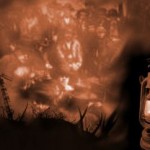 One of the very first things you learn as a genealogy beginner is to look in birth, marriage, death and census records for clues to uncovering your ancestral past. Then you learn about land records, sasines and other records associated with genealogy.
One of the very first things you learn as a genealogy beginner is to look in birth, marriage, death and census records for clues to uncovering your ancestral past. Then you learn about land records, sasines and other records associated with genealogy.
One often overlooked source of information for your family tree are trades union records.
The trade your ancestor worked in may hold valuable information. For example, the record of a tradesman can help you find an ancestor who has disappeared from the record or help you fill in the blanks of, where, when and why they changed locations between census. Quite often trades ran in families and you may even find generations of records if you are lucky.
For family history hunters with ancestors from the UK one record source you may want to track down is The Modern Records Centre. This unique resource is not genealogy specific nevertheless; they do have a number of collections that are genealogy gold.
The Modern Records Centre collection includes information on UK trade union employers that work as guide to help find specific records for individuals.
Some of the trades they cover include:
Blacksmiths, Forge & Smithy Workers
The Scottish United Operative Blacksmiths’ Protective and Friendly Society was recognized on 24 August 1857: records held in this collection are general registration books, 1857-1924. These records hold information on individuals however to find an individual you will need either their membership number or the year they joined the union. Another great resource in this collection is the monthly, quarterly and annual/financial reports (1858-1961). This set of records includes lists of deceased members and their spouses.
Joiners
The Amalgamated Society of Carpenters and Joiners/Amalgamated Society of Woodworkers hold membership records in three series. To find information on individual members you will need to know the branch to which your ancestor belonged.
· What the collection contains and what you can hope to find:
· Admission books (1895-1931): Your ancestors name, age when admitted, number of years in the trade, the date he was admitted, his marital status, if he recieved funeral benefits, excluded members and if he was transferred between branches.
· Registration books (1901-1921): Some of the information included are name, age when admitted, date admitted, marital status, date of marriage and name of branch, any benefits received and date of death or exclusion from the union.
· Reference books (1901-1921): The reference books contain lists of members in 1901, 1911 and 1921 that had transferred in another place.
· Annual reports (1920-1971): The most interesting thing about the Annual reports is that they contain obituaries of several members.
Railwaymen
There are several unions for railwaymen with records dating from so it will be very helpful to know exactly which union your ancestor was a member of. In spite of this, the collection has some of the richest genealogical holdings.
Annual reports of the Orphans Fund (1889, 1893-1912):
These records hold the details of payments made to the children of deceased members. To research the collection you will need to know the year(s) benefit were granted.
Record of accidents, inquests, Board of Trade enquiries, and legal cases (1901-1907):
This collection is indexed by branch and arranged in chronological order. It contains information on accidents and inquests and can tell you the date ,place and nature of an accident along with whether or not any compensation was paid or the outcome of an inquest. Researchers will need to know an approximate date of accident as well as the member’s branch.
The Modern Records Centre also holds union records for Boilermakers, Bookbinders, Bricklayers, Gilders, Ironfounders, Papermakers, Printing Workers, Quarrymen, Seamen, Shipwrights & Shipbuilders, Stonemasons and Telegraphists among many others.
Before you head off to research your ancestors trades take advantage of genealogybeginner.com’s 30-day free trial membership and download your Family Tree Charts and Research Tracking Forms today.
A Family History of Chivalry
August 20, 2012 by ramona
Filed under Articles, Family History, Latest News
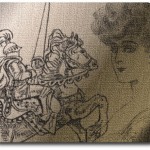 One of the most enjoyable things about researching your family history is learning about some lesser-known historical facts. This can be even more exciting when you discover that your ancestors had a part to play.
One of the most enjoyable things about researching your family history is learning about some lesser-known historical facts. This can be even more exciting when you discover that your ancestors had a part to play.
For example, it can be a thrilling moment when you discover that there was a knight in your family tree.
It can be a bit of a surprise if you find out that the knight was a woman.
During the middle ages, there were several orders of knighthood for women such as:
The Order of the Hatchet
Founded by the Count of Barcellona in 1149, The Order of the Hatchet honored the women who fought against the Moors in defense of the town of Tortosa. The Order granted the lady knights precedence over men at public assembly as well as an exemption from taxes.
The Order of the Glorious Saint Mary
Loderigo d’Andalo, an Italian nobleman from the town of Bologna founded The Order of the Glorious Saint Mary in 1233. Later approved by Pope Alexander IV in 1261, this was the first of the religious orders of knighthood granted to women.
The Order of the Garter
The Order of the Garter was granted to 68 women between the years 1358 and 1488. Many of the women appointed to this order were wives of knights of the order or those of noble blood: although, there were members who were neither. A symbol of the Knights of the Garter is a garter worn upon the left arm; many such are seen on the headstones of those inducted into the order.
The term for a woman who has been knighted is “Dame”.
If you find this title associated with one of your ancestors it will be because she belonged to an order of chivalry. Often these titles are only held for life and are not hereditary.
To learn more about medieval genealogy visit The Foundation for Medieval Genealogy but first remember to download your Family Tree Chart available with your 30-day free trial to Genealogy Beginner
New Family Tree Site Offers a Great Deal
August 19, 2012 by ramona
Filed under Articles, General Tips, Latest News
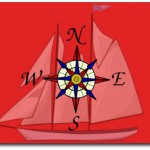 Genealogy beginners in the US will be happy to learn that findmypast has launched a new search site tailored to family history hunters across the pond.
Genealogy beginners in the US will be happy to learn that findmypast has launched a new search site tailored to family history hunters across the pond.
The new site titled findmypast.com is geared towards helping the descendants of UK immigrants conduct family tree research with records specifically tailored for US Family History researchers.
The records can be searched by:
- Census, Land and Substitutes
- Churches and Religion
- Education and work
- Immigration and Travel
- Institutes and Organizations
- Military Service and Conflict
- Newspapers, Directories and Social History
- Vital Records (Birth, Marriage, Death)
In addition to the US records, subscribers will have access to records from the UK, Ireland, Australia and New Zealand.
The best part is that right now findmypast.com is offering a limited time 76% Pioneer discount!
Is There Gold in your Family Tree?
August 14, 2012 by ramona
Filed under Articles, Genealogy Research Resources, Latest News, Sharing Genealogy Information
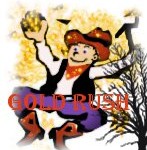 One of the most enjoyable things about climbing your family tree is discovering ancestors who were involved in one of histories great events.
One of the most enjoyable things about climbing your family tree is discovering ancestors who were involved in one of histories great events.
August 16th marks the anniversary of the Klondike Gold Rush and any genealogy beginner that descends from one of the miners or “Stampeders” who set off to strike it rich in 1897 needs to know about Yukon GenWeb.
The Yukon GenWeb is a compilation of free genealogy resources loaded with links and information to all things related to the “last great gold rush”. Their resources include a listing of related Archives & Libraries, Books and Publications, Yukon Cemeteries, Census Returns, Church Records and Registers.
Some of the highlights of their resources include:
- A collection of Directory Records with a link to Ferguson’s 1901 Alaska/Yukon Directory, which lists over 24,200 gold rush participants
- Pioneer Biographies in their Family Records collection
- Relevant First Nations information
- Immigration records including Border Entry, 1908-1918: List of Ports, Dates and Microfilm Reel Numbers
- Passenger Lists, 1865-1922
- Land Titles Records
- Military Records
Before you head off to search for your Gold Rush ancestors make sure you sign up for a 30-day free trial membership to Genealogy Beginner and download your complimentary family tree charts and research tracking forms.
You are going to need them when you start exploring the Pan for Gold Database, North West Mounted Police (NWMP) – Personnel Records, 1873-1904, Manager & Proprietors of Historic Yukon & Alaska Roadhouses, Hotels and Saloons plus so much more!
Gaming for Ancestors
August 7, 2012 by ramona
Filed under Articles, Family History, General Tips, Latest News, Preserving Your Family Tree
 If you are looking for a fun and unusual way to record your family tree you might want to consider playing Family Village.
If you are looking for a fun and unusual way to record your family tree you might want to consider playing Family Village.
Family Village is a facebook game that allows family history hunters to build a family tree in game format. The premise of the game is to invite relatives to play and create a database of ancestors along with living family members by entering their information into the game.
How Does this Create a Database of Ancestors?
The game allows you to go on quests and build a village by entering all the usual types of genealogical information about your ancestors such as birth, marriage and death documents and photos. It allows you to enter immigration information, maps and newspaper articles as well as adding occupations. You can even build avatars of your ancestors.
In their vision statement game developer Finium says that their purpose in developing the game is to provide meaningful games that will aid family tree hunters in preserving their family history.
Family Village is a great way to connect with relatives and get the whole family involved in genealogy.
Ships Lists: Free Genealogy Resource
August 5, 2012 by ramona
Filed under Articles, Genealogy Research Resources, Latest News, Sharing Genealogy Information
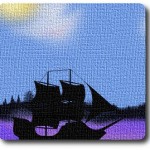 Genealogy beginners looking for immigrant ancestors should head straight over and bookmark The Immigrant Ships Transcribers Guild (ISTG) website.
Genealogy beginners looking for immigrant ancestors should head straight over and bookmark The Immigrant Ships Transcribers Guild (ISTG) website.
The ISTG is a volunteer group that has been working since 1998 to transcribe ships lists on a global scale and publish them on the internet. In the years since its inception, the ISTG website has grown to include volumes of passenger manifests.
The scale of the site may make navigating it a little intimidating to the novice family history hunter. A short tutorial will help make things a little easier.
How to Search the ISTG
Step one:
Locate the search box on the upper left hand corner of the opening page and enter the surname you are researching. This should move you forward to a page with a long list of matches.
Step Two:
On the upper right hand corner of the page, you will find an option for advanced searches…click the option.
The advanced search will give you four text boxes
1. All – will return pages that include all of the terms entered
2. Phrase – will return pages matching the exact phrase
3. Any – will return pages that match any of the terms – in no specific order
4. None – includes other selected items and must be used in tandem with other fields
For example, entering “Alexander McCallum” into the “All” field returns ships named Alexander as well as passengers surnamed Alexander and McCallum.
The same search entered in the “Phrase” field returns only passengers named Alexander McCallum.
In the Any field these search terms return the same results as entering into the “All” field. It is good to use the “None” field in tandem as you can enter terms you do not want matched in order to narrow your search.
Once you are comfortable using the search function you will be free to search some of this sites great free resources from Jacobite rebellion ships to New York arrivals.
One great feature of this site that you will not want to miss is the ISTG compass, which is a tool to simplify your searches by breaking down resources into consumable information bites.
The ISTG is another site that relies heavily on volunteer transcribers, if you would like to help check out their Guild Application for more information.
Make sure you are prepared for your visit to The Immigrant Ships Transcribers Guild with Genealogy Beginners Family Tree Starter Kit, available with your 30-day free membership.
Research Americas Earliest Immigrants FREE
July 30, 2012 by ramona
Filed under Articles, Genealogy Research Resources, Latest News, Sharing Genealogy Information
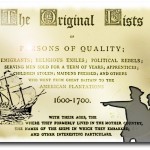 Family Tree fanatics wishing to research the earliest immigrants to the Americas are in for a real treat with this fantastic book published in 1874 and titled The Original Lists.
Family Tree fanatics wishing to research the earliest immigrants to the Americas are in for a real treat with this fantastic book published in 1874 and titled The Original Lists.
The book will be of great interest to any family history seekers whose family came to the Americas during 1600-1700.
Its contents are comprised of the original lists of:
- Persons of quality
- Emigrants
- Religious exiles
- Political rebels
- Serving men sold for a term of years
- Apprentices
- Children stolen
- Maidens pressed; and others who went from Great Britain to the American Plantations, 1600-1700
It is exciting to note that within the pages of this fantastic resource is a list of early immigrant passengers that came over on the Mayflower (1620), The Fortune (1621), The Anne and Little James(1623).
Along with this bounty of genealogical booty, the book lists the ages of individuals, the ships they embarked on and various other interesting details such as the following:
“The bill of mortality of the said rebells that dyed since they were reced on board and were thrown overboard out of the said ship are these uiz. December the Sixteenth Thomas Venner, Seventeenth W* Guppy, Eighteenth John Willis, Nineteenth Edward Venn, the same day Philip Cox one and Twentieth Robert Vawter, Five and Twentieth Wm Greenway, January the first Peter Bird, Witnessed by the commander, March and officers’ of the said ship this Eigth day of January 1685.”
John May
John Penn
John Maddison
Gabriel Whithorn
Malcum Fraser
One very interesting chapter is “Entries relating to America taken from the Indexes to the Patent Rolls, commencing 4 James I 1606 and ending 14 William III 1702.” The entries in this section are very intriguing and include entries such as:
“Grant of Incorporation, by the name of the treasurer and Company of Adventurers and Planters in the city of London and Bristol, For the Colony and Plantation in Newfoundland.”
Taken from manuscripts held in the State Department; Her Majesty’s Public Record Office, England, this incredible resource is filled from cover to cover with fascinating histories of the earliest pioneers to the Americas.
Before you start flipping through the pages, remember to download your Family Tree Charts and Research Tracking forms available with your 30- Day free trial to Genealogy Beginner.
Read The Original Lists at Internet Archives
Obama Descendant of First Slave?
July 29, 2012 by ramona
Filed under Articles, Latest News
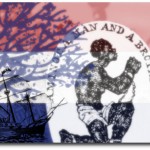 Since first starting out on the election trail, President Barack Obama’s family history has been a subject of great interest. In this week’s news, Obama’s family tree has become even more noteworthy as genealogist claim to trace his descent from the American Colonies first documented slave.
Since first starting out on the election trail, President Barack Obama’s family history has been a subject of great interest. In this week’s news, Obama’s family tree has become even more noteworthy as genealogist claim to trace his descent from the American Colonies first documented slave.
The Roots of Slavery
The commencement of slavery in the US began in Virginia with the arrival of 20 Africans aboard a Dutch Man – o – War. At its inception, slavery was not legally recognized and the status of Africans was documented as indentured servants. This can be seen in the colonial court records of Virginia in a document dating from 1625 that notes “Antonio the Negro” as a servant.
In those early times, there was no distinction between black and white indentured servants. As a result, it was common for black and white indentured servants in addition to “Poor whites” to associate closely, working side by side, becoming friends and often intermarrying.
John Punch
In the year 1640 one black and two white indentured servants ran away from the Virginia plantation where they worked. Eventually, the tree escapees were captured and returned to the plantation. Upon their return, the Virginia General Court passed a sentence of four additional years of servitude onto the white runaways while African John Punch received a punishment of life in servitude, making him the first (documented) black slave in American history.
The Ancestral Connection
Genealogist conducting research for Ancestry.com claim to have traced the descent of the American Commander and Chief to Punch; surprisingly through Obama’s maternal white line. The president’s mother, Stanley Ann Dunham is reported to have a line of descent to white landowners in the Virginia colonies.
The genealogists contend that it is through a Dunham woman and John Punch that President Obama’s line descends. If their findings are accurate, Punch is Obama’s 11th great grandfather.
If this is true, there is a certain poetic justice in that a descendant of the first black slave was to become the first black president.
Irish Surname Resources
July 23, 2012 by ramona
Filed under Articles, Genealogy and Surnames, Introduction to Genealogy, Latest News
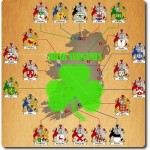 Are you an O’Mally or an O’Neil?
Are you an O’Mally or an O’Neil?
If you are a genealogy beginner in search of Irish surname resources you are in luck because you are among the millions of fortunate family tree fanatics who can draw from a wide variety of genealogy resources.
To get started you might want to check out this fantastic Irish Surname Infographic which gives an at-a-glance overview of the top twenty most common Irish surnames.
Other information you can find on the infographic include:
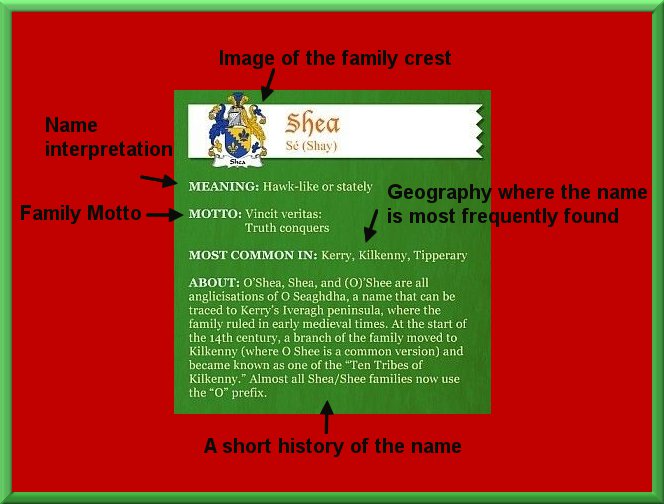
Another fantastic resource to check out is Irish Central an online magazine packed with all things Irish including an in depth article explaining the top 100 Irish surnames.If you already know about your Irish surname and you are ready to start digging deep for your Irish roots try stopping by Irish Genealogy where you can search almost three million pre-20th century Church records for FREE.
Want more resources? Try Genuki Ireland for links on where to research:
INFORMATION RELATED TO ALL OF IRELAND
|
|
Before you get started on your Irish family history research, don’t forget to download your Research tracking forms and Family Tree Charts. Available with your 30-Day FREE TRIAL MEMBERSHIP to Genealogy Beginner
